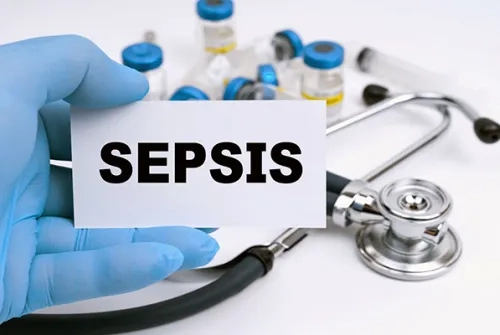Alo Yeditepe
Alo Yeditepe
Symptoms and Treatment of Sepsis
Head of Medical Microbiology Department of Yeditepe University Hospitals and Head of KLİMUD (Clinical Microbiology Specialization Association) Blood Culture and Sepsis Study Group Prof. Dr. Aynur Eren Topkaya answered questions about Sepsis for "September 13 World Sepsis Day".
Sepsis is a life-threatening multiple-organ dysfunction caused by an irregular host response to infections. If not identified and treated early, septic shock can result in multiple organ failures and death. Sepsis is a common cause of loss of life for many of the world's infectious diseases.
It is difficult to calculate the global burden of sepsis due to regional differences between diagnostic criteria and surveillance activities worldwide. However, it is estimated that there are up to 45-50 million new cases per year and about 11 million sepsis-related deaths. With these data, sepsis has a 20% rate among all causes of death.
Nearly half of the sepsis cases (about 20 million cases and 2.9 million deaths) are in childhood age groups. About 40% of cases are children under the age of five. The causes of sepsis in this group are diseases or lower respiratory tract infections that usually progress with diarrhea, which can be prevented by early diagnosis and treatment. All obstetric sepsis, including postpartum complications or cesarean infections, is the third most common cause of maternal death.
Approximately half of the sepsis patients treated in intensive care units develop as a result of healthcare-related infections. Healthcare-associated infections are often resistant to antimicrobials and increase the risk of mortality by causing worsening clinical conditions and accelerating the development of sepsis.
Rational antimicrobial use, early diagnosis, and appropriate clinical management are the most important factors that increase the likelihood of survival of patients with sepsis. However, in the fight against sepsis, it is significant to use infection prevention and control measures such as giving importance to good hygiene practices, developing studies on clean water and sanitation, providing access to vaccine programs, having sufficient and competent personnel in health institutions to spread infection control practices, strengthening laboratory conditions to reach a rapid and accurate diagnosis, rational use of intensive care units and giving importance to easy access.
Sepsis may have an acute onset and short-term mortality burden, as well as a cause of morbidity that requires long-term treatment and support. For this reason, as Medical Microbiology specialists, we pay tribute to our colleagues in the hope of further increasing awareness for rapid and accurate diagnosis of sepsis, promoting new diagnostic tools by remembering once again the importance of being in teamwork with all relevant disciplines due to "September 13 World Sepsis Day", increasing the effectiveness of Medical Microbiology laboratories and ensuring that they are strengthened and that all our patients are diagnosed correctly on time.
This content was prepared by Yeditepe University Hospitals Medical Editorial Board.
”
See Also
- COVID-19 New Variant
- What is Parvovirus B19 (Fifth Disease)? What are the Symptoms of Fifth Disease?
- What is Antibiotic Resistance?
- The Way to Prevent the HIV Pandemic Can Be Made with Awareness
- Do Not Run Away From the Vaccine! The Coronavirus Itself Is More Dangerous Than The Side Effects of The Vaccine...
- What Should be Paid Attention to in Face-to-Face Education?
- Flu Is Widely Seen This Year
- Attention! Holiday Return Cases May Increase
- Why Do Mosquitoes Bite Some People More?
- What is Monkeypox Virus? What Are the Symptoms of the Monkeypox Virus?
- Is it Necessary to Disinfect Outdoors?
- Can the Coronavirus Be Transmitted Through What We Eat?
- Use of Gloves During the Pandemic
- Frequently Asked Questions About Coronavirus
- Catching Coronavirus
- Multiple Tests Are Available for COVID-19
Alo Yeditepe



